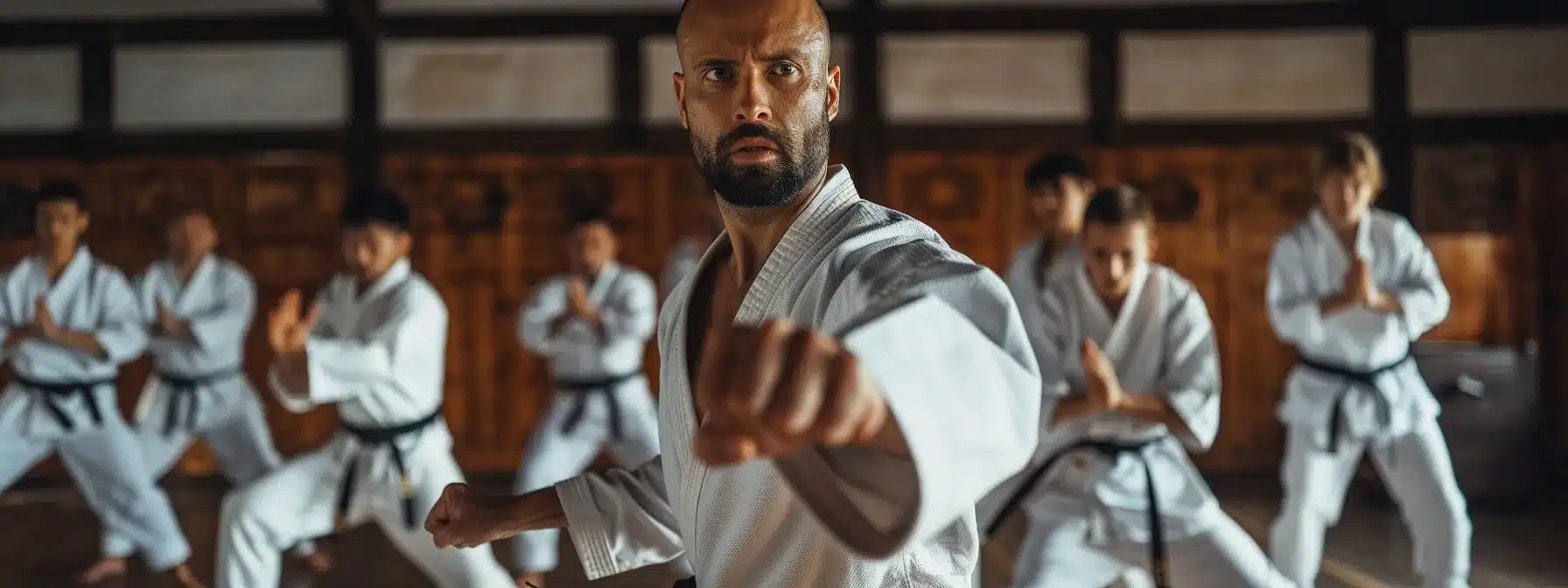Many martial arts instructors struggle to turn their passion into a thriving business. If terms like “knowledge,” “kick,” “skill,” and “black belt” resonate, then this guide is for them. This post will guide them through enhancing operational efficiency and marketing tactics that can help their school stand out. Addressing common challenges martial arts schools face will show how martial arts coaching can be the secret ingredient to their success. This guide aims to provide practical strategies that will ensure the growth and longevity of their martial arts school.
Key Takeaways
- Martial arts coaching bridges the gap between martial arts and running a successful school
- Marketing, financial planning, and operations are key to growth beyond just teaching skills
- Streamlining operations with technology improves efficiency and student engagement
- Agility and continuous improvement underpin long-term success in the martial arts business
- Networking and creative advertising can significantly boost student enrollment and retention
The Foundation of Business Coaching in Martial Arts Schools
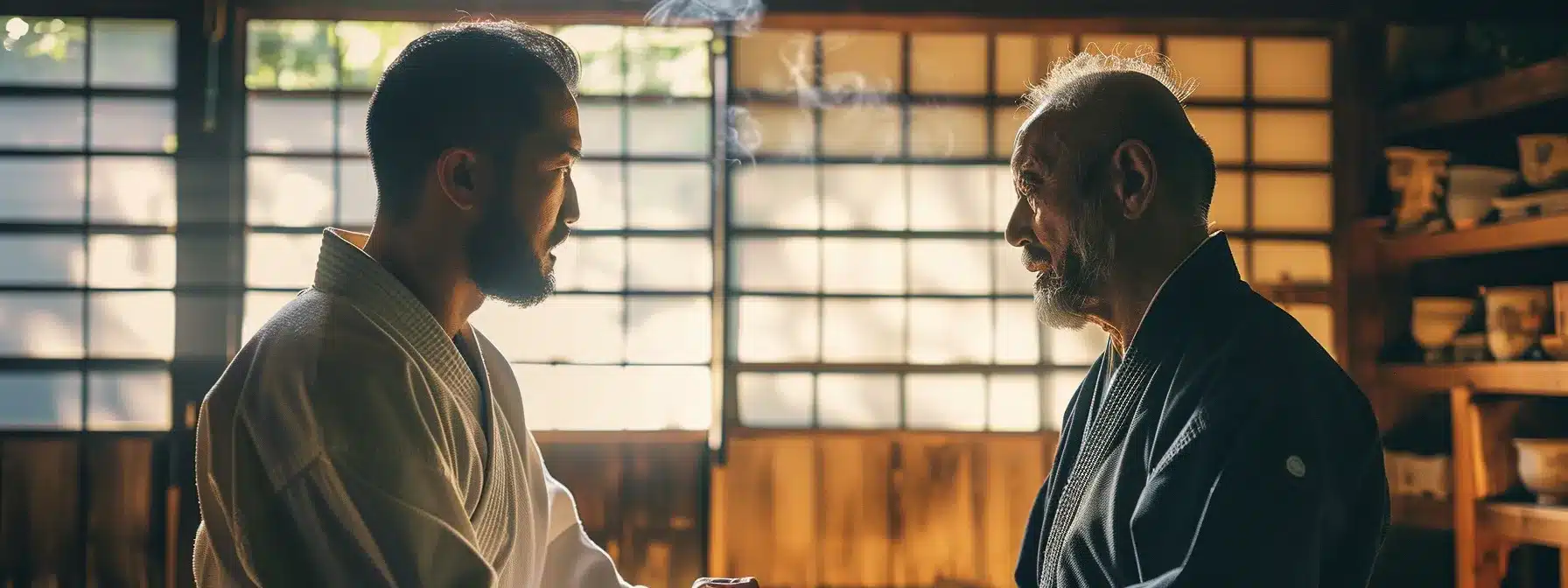
As martial arts instructors soon discover, running a martial arts school involves more than just teaching; it requires learning the science of business management specific to the unique martial arts setting. This is where martial arts coaching clarifies goals and the way forward. Recognizing the difference between practicing martial arts and effectively running a school is key. Through martial arts coaching, school owners can figure out what their school aims to achieve, craft a solid business plan, and ensure they are not just great martial artists but savvy business owners as well. All these steps, from understanding the role of martial arts coaching to laying a concrete plan, are crucial for thriving anywhere in the world.
Understanding the Role of Martial Arts Coaching
Through years of teaching taekwondo, many have learned that martial arts coaching is pivotal for school owners, offering a wealth of experience to draw upon. The guidance from martial arts coaching helps them navigate the business side of their sport, integrating martial arts values with solid business strategies. As experts who have been in the trenches, martial arts coaches can provide actionable insights that turn everyday challenges into stepping stones for growth. This support empowers school owners to lead their schools toward success by addressing their needs with solutions that resonate with their goals.
The Difference Between Teaching Martial Arts and Running a School
Many martial arts instructors quickly realize there’s a big difference between the art of martial arts and the art of running a school. Teaching the skills and discipline of martial arts requires attention to detail and a passion for the craft. Yet, steering a successful school demands a grasp of information management and creating a community where members feel valued and engaged. Martial arts coaching helps bridge that gap, showing instructors how to harness their passion for martial arts and channel it into strategies that strengthen their school’s foundation.
Everyday Scenarios in the School
Identifying Goals and Objectives for Martial Arts Schools
Identifying clear goals and objectives unlocks a dojo’s potential. Whether that means sculpting a vision for how trainers will transform students or laying out steps to incorporate exercise into every class, it’s all about specificity. Martial arts coaching assists school owners in pinning down these targets and tailoring strategies, ensuring every move in business is as effective as those in training sessions. This leads to measurable growth and a stronger school community.
The Importance of a Business Plan
Sketching a detailed business plan should be a priority for any martial arts school owner. It instills confidence in the leadership and every aspect of the dojo, from classes to the coaching staff. A robust business plan lays the foundation for motivation and a positive mindset, guiding owners in making informed decisions, targeting the right audience, and structuring the curriculum to reflect the school’s essence and values. It is the strategic map that keeps everyone focused and driven, whether tackling day-to-day operations or planning long-term expansions.
Tailoring Business Strategies for Martial Arts Success

Stepping into the dojo is about more than health and education; it’s about creating a thriving business. Martial arts coaching focuses on market analysis specific to martial arts schools, reflecting on how branding and positioning can set them apart even in bustling cities. It also tackles financial planning and management, not just to stay afloat but to thrive. And not forgetting about evolving revenue streams, it’s not only about membership fees anymore. Each strategy is a piece of the puzzle for martial arts school success.
Market Analysis for Martial Arts Schools
When martial arts school owners dive into market analysis, they realize it’s much more than just looking at numbers—it’s about understanding their students. Using insights from martial arts coaching, they can research their local area to identify specific needs, such as families looking for confidence-building classes or young adults seeking advanced techniques. This goal-oriented approach helps tailor offerings and marketing efforts, resulting in better recruitment and retention rates for the school.
Branding and Positioning Your Martial Arts School
With guidance from martial arts coaching, schools can position themselves not just as another gym but as a sanctuary for physical fitness and personal growth. Effective branding means showcasing the school as the go-to place for combat sports training and cultivating a holistic lifestyle. Striving to be seen as leaders in the space, they teach more than punches and kicks, imparting life skills and resilience to their students. It’s about being unique and true to the spirit of martial excellence.
Financial Planning and Management Essentials
Embarking on the financial planning and management journey for a martial arts school requires discipline that mirrors the training itself. Just as schools regularly obtain student feedback to improve classes, the financial side also demands continuous evaluation to stay prosperous. By keeping a finger on the pulse of financial health, owners can make informed decisions, ensuring their school’s sustainability and growth in the competitive martial arts landscape.
Keeping Finances in Fighting Shape
- Develop a budget that accounts for all expenses, from equipment to staff training.
- Maintain accurate financial records to track progress and identify areas for improvement.
- Review financial goals and outcomes quarterly, using feedback to fine-tune the strategy.
This approach fortifies the school’s financial stability and provides a clear vision that guides every move in the business arena.
Expanding Revenue Streams Beyond Membership Fees
For martial arts schools, venturing beyond the usual membership fees can be a game-changer. Integrating services like personalized training, workshops, and sessions with experienced trainers attracts a wider audience. Focusing on the philosophy of martial arts through seminars adds incredible value, captivating those interested in the deeper aspects of their training. These expansions not only diversify income but also enrich the community’s experience.
Enhancing Operational Efficiency With Professional Guidance
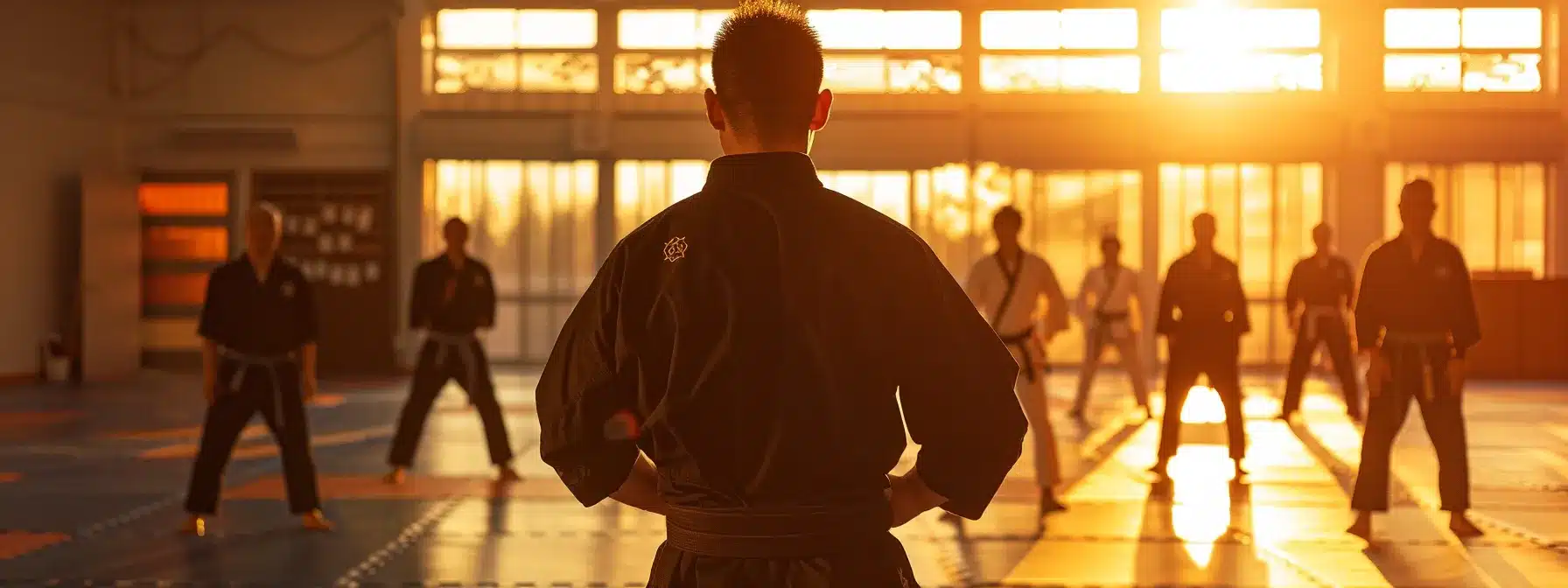
Streamlining school operations is key to taking performance to the next level. By focusing on leveraging technology, martial arts schools can be managed more efficiently. This includes introducing effective staff training and development, which can be a game-changer for any team. Additionally, constantly refining systems to boost student retention and growth is crucial. Schools can run smoother and become more successful with the right martial arts coaching.
Streamlining Operations for Better Performance
With guidance from martial arts coaching, streamlining operations can be invaluable for martial arts schools. Simplifying the sign-up process and improving class scheduling makes it easier for students to get involved and stay committed. Techniques like automating administrative tasks give owners more time to focus on teaching and growing their martial arts community efficiently and effectively.
Key Areas of Operational Transformation
- Implementing a student management system that tracks attendance and progress creates a rewarding journey for each individual.
- Optimizing the school’s online presence, from the website to social media, ensures that it is the first stop for anyone interested in martial arts in the area.
- Developing a system for feedback collection from students and parents to refine programs continuously.
With the right system in place, schools can see a steady increase in student enrollment and retention, underscoring the power of skilled martial arts coaching in the industry.
Leveraging Technology in Martial Arts School Management
Embracing technology can be a game-changer for martial arts schools, transforming how day-to-day operations are managed. With reliable martial arts school management software, schools can optimize everything from attendance tracking to billing processes. This technological boost means the team spends less time on paperwork and more on what really matters—teaching and connecting with students. It’s this combination of savvy martial arts coaching and cutting-edge tools that elevates schools in the competitive space of martial arts education.
Effective Staff Training and Development Programs
Investing in staff training and development programs is pivotal for growing a martial arts school. Well-coached teams can significantly improve student experience and retention rates. With the help of martial arts coaching, focused training sessions can equip staff with the latest teaching methods and customer service skills. This enhances the school’s reputation and fosters a culture of continuous improvement that keeps students and staff engaged and committed to mutual success.
Implementing Systems for Student Retention and Growth
Implementing a student retention and growth system can reshape how martial arts schools maintain and nurture their community. Focusing on building relationships with students by setting up personalized tracking systems that monitor progress and celebrate achievements leads to a noticeable boost in student loyalty and word-of-mouth referrals, which are invaluable for any school’s growth. By placing student satisfaction at the heart of operations, a martial arts school can become not just a training center but a second home for many.
Marketing and Promotion Tactics for Martial Arts Schools
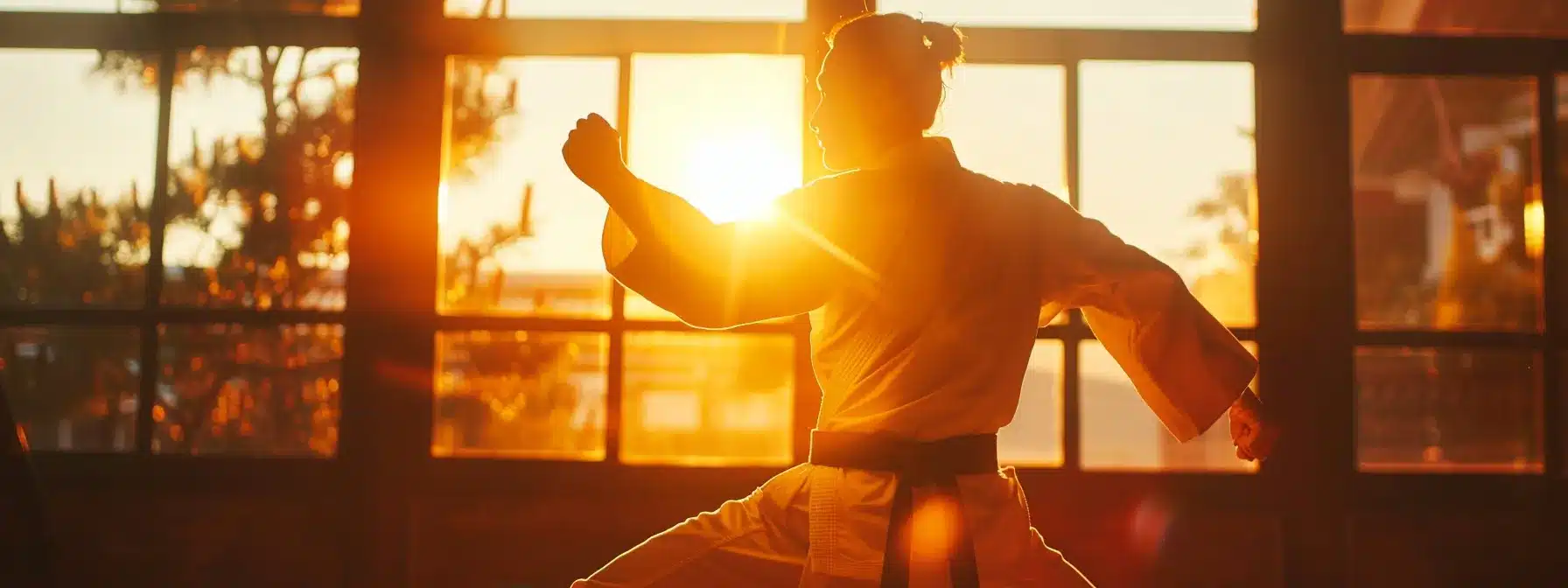
Dynamic marketing and promotion are vital for running a successful martial arts school. Crafting an online presence that captures the school’s spirit, using social media to keep students engaged, and tapping into networking to strengthen community ties are essential strategies. Additionally, creative advertising moves can make a significant impact. Each of these areas is a powerful tool in growing the school and keeping it front and center in people’s minds.
Crafting a Compelling Online Presence
An effective online presence is like a school’s digital front door. It’s where first impressions are made and where potential students get a glimpse of what to expect. Through martial arts coaching, schools can craft an online platform that reflects the vibrancy and professionalism of their dojo. This involves a user-friendly website and an active social media presence where success stories, training tips, and community connections are shared. It’s all about clear, engaging content that draws people in and keeps them returning for more.
Ensuring an Online Presence Stands Out
- Update the website regularly with fresh, SEO-friendly content that ranks well on search engines and provides value to visitors.
- Engage actively on social media, creating a community feel by sharing behind-the-scenes looks, celebrating student achievements, and responding promptly to comments and messages.
- Email newsletters inform members about upcoming events, specials, and noteworthy school achievements, keeping them connected even outside the gym.
Utilizing Social Media to Engage and Attract Students
The power of social media can make a martial arts school a local hotspot for enthusiasts and beginners alike. By sharing the energy of classes and the stories of students’ successes, schools create an engaging online community and attract new faces excited to start their martial arts journey. This authentic peek into their world hooks potential students and keeps current ones motivated, making social media an indispensable tool in a school’s growth and student engagement strategies.
Networking and Community Engagement Strategies
Networking and building strong community engagement are crucial for spreading the word and creating a solid reputation for a martial arts school. Holding local events, partnering with other businesses, and participating in community service showcase the school’s commitment to the neighborhood and open doors to new student enrollments. By genuinely connecting with the community, the school can become more than just a martial arts center; it becomes a recognized and respected local health and activity pillar.
Creative Advertising Techniques for Martial Arts Schools
Embracing creative advertising techniques that resonate with the community can expand a martial arts school’s reach. One tactic is hosting ‘open mat’ events, inviting locals to watch and participate in free classes, sparking interest and increasing enrollments. Additionally, collaborating with local businesses to offer joint promotions ties the school’s name to a network of establishments, tapping into a shared customer base and fostering a sense of community-wide support for martial arts programs.
Overcoming Challenges Faced by Martial Arts Schools
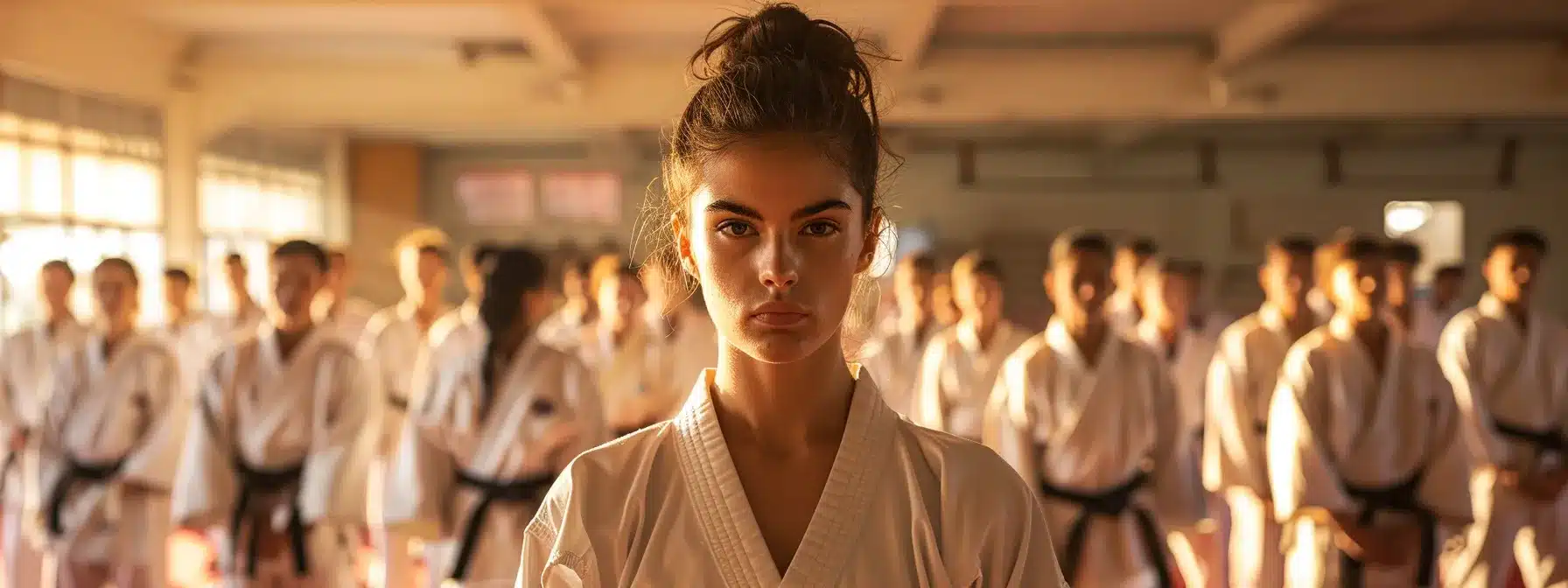
Martial arts coaching helps martial arts schools face challenges head-on. Owners learn how to navigate economic changes and shift strategies to stay afloat. Addressing everyday obstacles becomes less of a hassle, and techniques are honed to keep students returning, even when the competition heats up. Planning for the school’s expansion and tackling scaling issues become part of strategic discussions. These topics are more than bullet points; they make the blueprint for success.
Navigating Economic Uncertainties and Market Shifts
Navigating economic uncertainties and market shifts is essential for martial arts schools to stay competitive. Through martial arts coaching, owners can develop the resilience to adapt to changing financial climates, creating flexible business models that keep schools agile and profitable. By updating strategies and offerings in response to market demands, they maintain their edge and continue to thrive, even when the economic landscape is unpredictable.
Addressing Common Operational Hurdles
Martial arts school owners often face operational challenges, from managing cash flow to filling classes. Martial arts coaching is key to overcoming these hurdles. Coaches guide owners to adopt streamlined processes and smart financial management techniques. This assistance is critical in maintaining the school’s balance, ensuring that administrative tasks don’t overshadow the core mission: teaching martial arts. By addressing these operational hurdles with expert advice, schools can focus more on what they do best—training their students.
Strategies for Retaining Students in Competitive Markets
One tactic for keeping classes full in a competitive market is personalizing the student experience. Schools can see increased loyalty and referrals by acknowledging each student’s progress, creating a mentorship atmosphere, and fostering a strong sense of community. Martial arts coaching teaches that when students feel valued and part of something bigger than just a class, they stay engaged and are more likely to remain long-term despite the many options out there.
Handling Expansion and Scaling Challenges
On the path to growing a martial arts school, owners may face the excitement and daunting task of expanding. With the help of martial arts coaching, they can tackle the complexities of scaling up. This strategic mentorship proves immensely valuable, guiding them through decisions like hiring additional staff, expanding facilities, and introducing new programs without diluting the school’s renowned culture. By staying true to their roots and focusing on scalable growth, schools can successfully broaden their impact without compromising the quality that students have come to expect.
Conclusion
Martial arts coaching is the cornerstone of turning martial arts passion into a profitable enterprise, guiding school owners from just teaching martial arts to expertly managing thriving businesses. It equips them with strategies for solid market positioning, streamlined operations, and diversified revenue streams, fostering resilience and growth. As seen through various success stories, professional coaching can revive a struggling school, steer a startup to become a market leader and ensure continuous improvement for long-term success. The transformative impact of martial arts coaching in martial arts schools underscores its vital role in cultivating successful businesses that are as strong and agile as the martial artists they serve.

